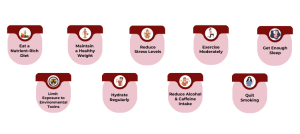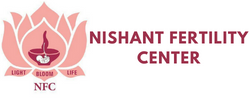Natural Ways to Enhance Egg Quality for IVF Succes

When couples are trying to conceive through in vitro fertilization (IVF), one of the most critical factors influencing the success of the procedure is the quality of the woman’s eggs. Egg quality plays a key role in the chances of fertilization, embryo development, and pregnancy. Understanding why egg quality is essential and how to improve it naturally can enhance the overall success of IVF treatment.
Why is Egg Quality Important?
Egg quality refers to the health of a woman’s eggs and their ability to result in a healthy embryo. Poor egg quality can lead to:
• Difficulty in fertilization: Healthy eggs are more likely to be successfully fertilized by sperm.
• Chromosomal abnormalities: High-quality eggs are less likely to have genetic issues that can prevent implantation or cause miscarriage.
• Lower pregnancy rates: Poor egg quality may reduce the chances of a successful pregnancy, even if fertilization occurs.
• Declining fertility with age: As women age, the quality of their eggs naturally decreases, making IVF less effective in some cases. Women over the age of 35, especially, often face challenges related to egg quality.
Given these factors, improving egg quality naturally can boost the success rate of IVF and help achieve a healthy pregnancy.
Related- How to Increase Your Chances of Getting Pregnant?

How to Improve Egg Quality Naturally
While age is a factor that cannot be controlled, there are various natural ways to improve egg health. These approaches focus on lifestyle changes and holistic practices that can make a significant difference in egg quality.
1. Eat a Nutrient-Rich Diet
A well-balanced diet filled with essential nutrients helps improve the quality of eggs. Key nutrients that benefit egg health include:
• Folate: Found in green leafy vegetables, lentils, and broccoli, folate supports DNA repair and healthy cell division.
• Omega-3 Fatty Acids: These essential fats, found in fatty fish like salmon, chia seeds, and flaxseeds, reduce inflammation and support reproductive health.
• Antioxidants: Foods rich in antioxidants, such as berries, nuts, and colorful vegetables, help protect the eggs from oxidative damage and improve cellular function.
2. Maintain a Healthy Weight
Excessive weight gain or weight loss can negatively impact hormonal balance and egg quality. Maintaining a healthy weight through regular physical activity and balanced nutrition helps ensure optimal fertility. Consult with a healthcare professional to develop a personalized plan to reach and maintain a healthy weight.
3. Reduce Stress Levels
High-stress levels can negatively affect fertility by interfering with hormonal balance and ovulation. Incorporating stress management techniques into your daily routine can improve egg quality and overall reproductive health:
• Yoga: Gentle yoga practices help balance hormones, improve circulation, and reduce stress.
• Meditation: Practicing mindfulness or meditation can help you manage anxiety and maintain emotional well-being during your fertility journey.
4. Exercise Moderately
Exercise boosts circulation and helps maintain a healthy hormonal balance. However, avoid extreme or high-intensity workouts, as they can disrupt the delicate hormonal balance needed for egg health. Moderate activities like walking, swimming, or yoga can be highly beneficial.
5. Get Enough Sleep
Sleep plays a vital role in regulating hormones that affect egg production and overall reproductive health. Strive for 7-9 hours of quality sleep each night to give your body the rest it needs to repair and maintain healthy eggs.
6. Limit Exposure to Environmental Toxins
Environmental toxins, such as chemicals found in plastics, pesticides, and personal care products, can harm reproductive health. To reduce exposure:
• Choose organic foods when possible to avoid harmful pesticides.
• Use BPA-free containers and limit plastic use in food storage.
• Opt for natural, chemical-free cleaning products and cosmetics.
7. Hydrate Regularly
Proper hydration is essential for cellular health, including the health of your eggs. Drink plenty of water throughout the day to ensure optimal circulation and nutrient delivery to your reproductive organs.
8. Consult Your Fertility Doctor for the Right Supplements
While certain supplements may support egg quality, it’s essential to consult your fertility doctor before taking any. Avoid self-prescribing or using over-the-counter fertility medications. A fertility specialist can guide you on safe and effective supplements based on your specific needs, ensuring that they complement your overall treatment plan without causing harm.
9. Reduce Alcohol and Caffeine Intake
Excessive consumption of alcohol and caffeine can have a negative effect on egg quality. Limit caffeine intake to no more than 200 mg per day (about one cup of coffee) and reduce or avoid alcohol consumption when trying to improve fertility.
10. Quit Smoking
Smoking damages eggs, accelerates egg depletion, and increases the risk of genetic abnormalities. Quitting smoking is crucial for preserving egg quality and fertility.

Conclusion
Improving egg quality naturally is a multi-faceted approach that involves focusing on diet, lifestyle, and environmental factors. While no method can fully reverse the natural decline in egg quality that comes with age, these changes can significantly boost your chances of a successful IVF outcome. At Nishant IVF Care, we understand the complexities of fertility and provide personalized care to help you on your journey to parenthood. By focusing on natural ways to enhance egg quality, we support your path to a healthier pregnancy and a brighter future.
